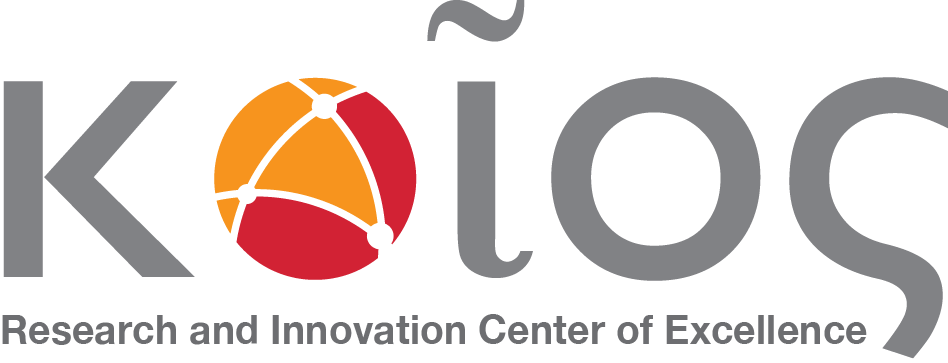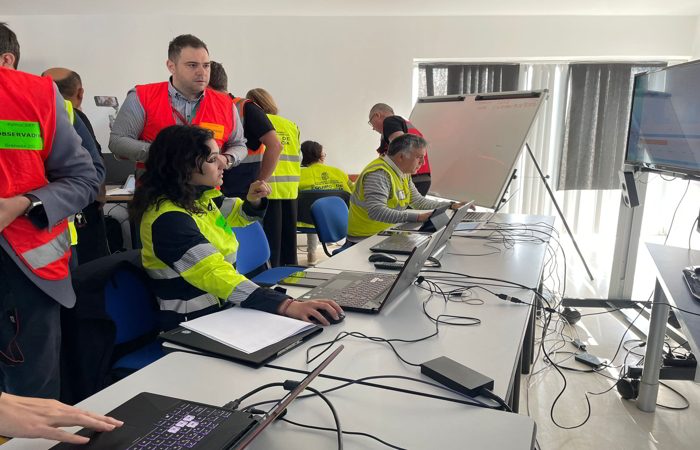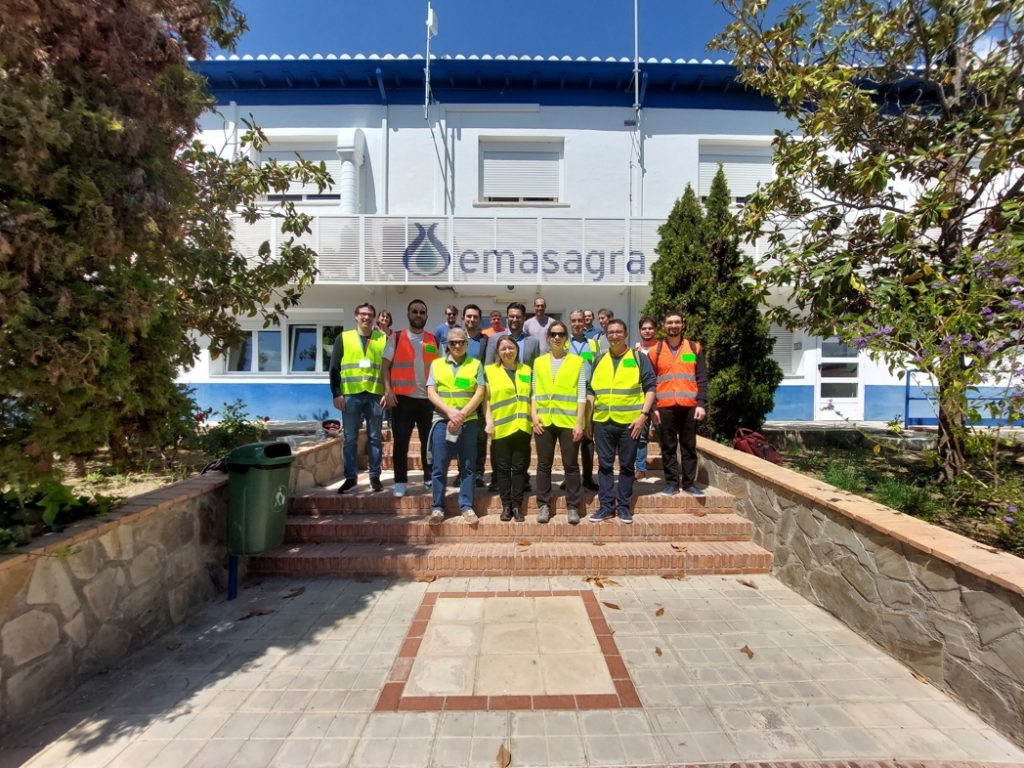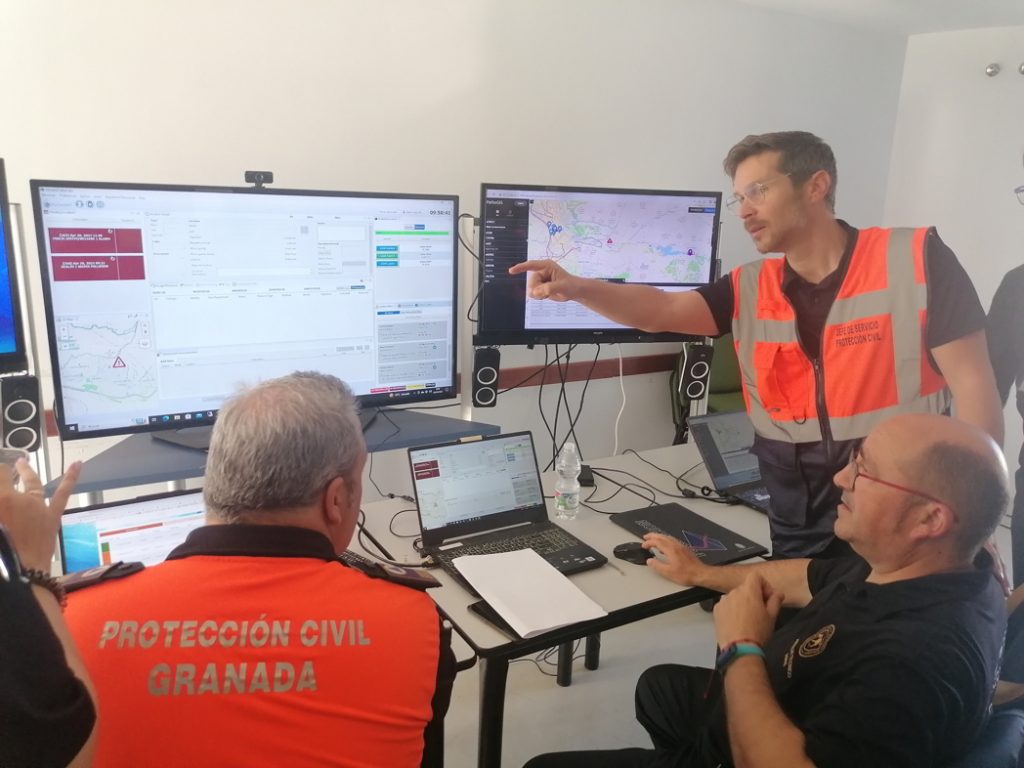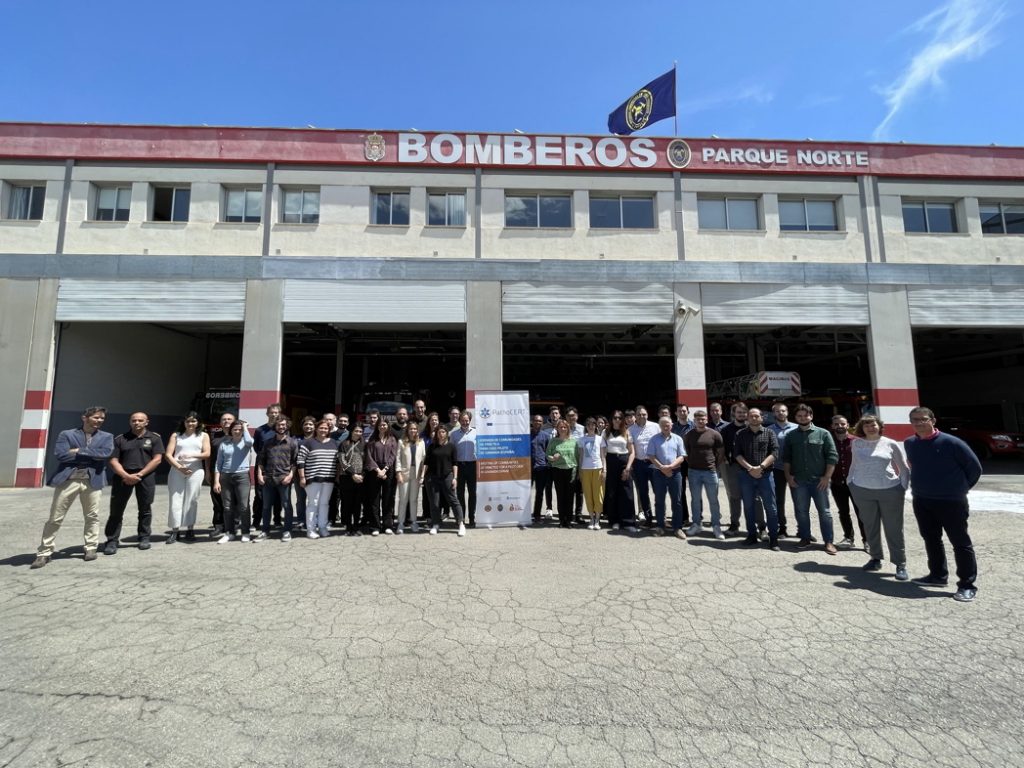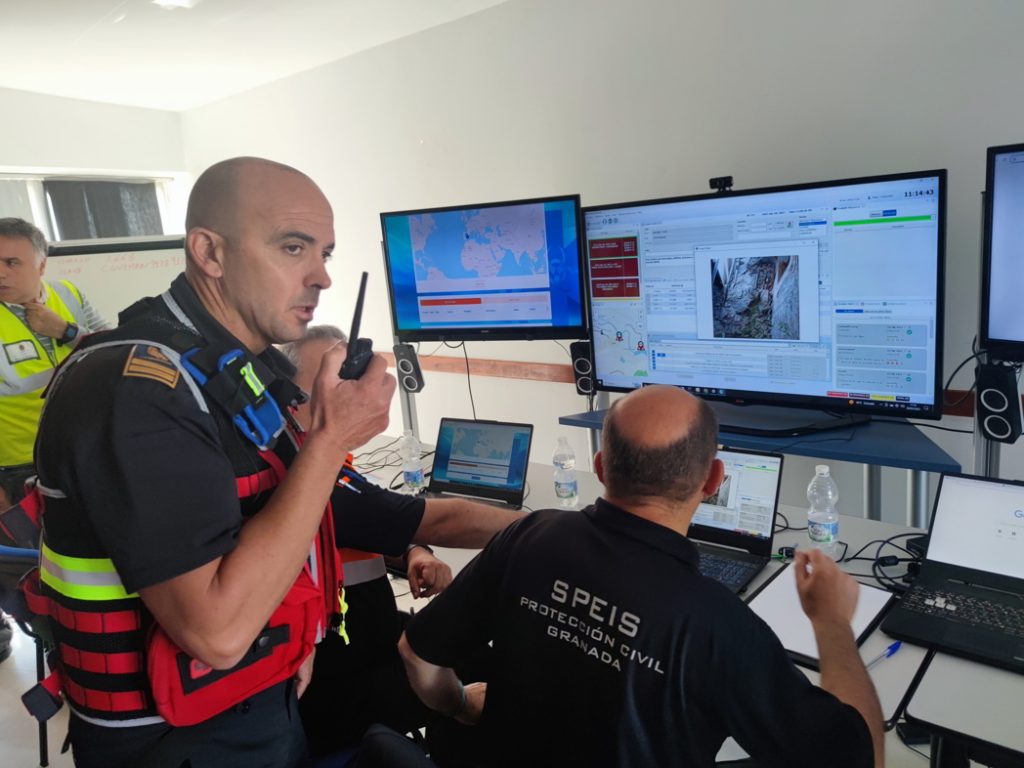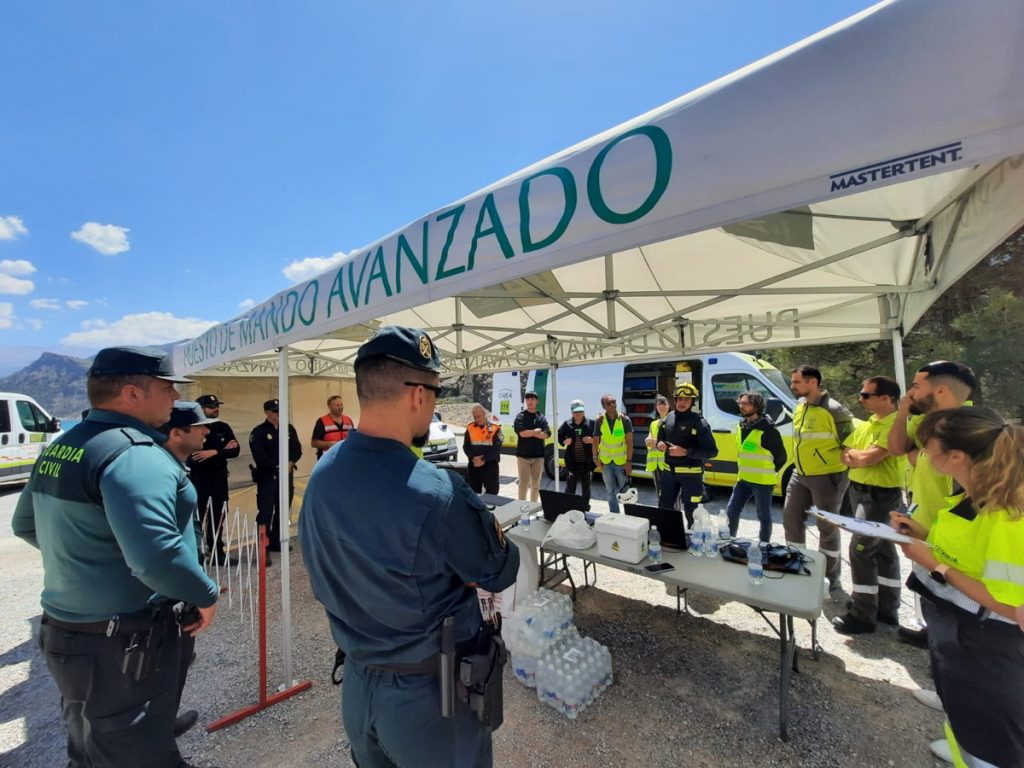On the 20th of April 2023, a large-scale emergency response simulation exercise took place in the city of Granada in Spain, involving more than 250 first responders and technical experts. During the exercise, innovative technologies for the management of waterborne pathogen contamination events were field-tested and evaluated. The exercise was held within the framework of the research project “Pathogen Contamination Emergency Response Technologies (PathoCERT), which is funded by the European Union’s Horizon 2020 and coordinated by the KIOS Research and Innovation Center of Excellence at the University of Cyprus.
The exercise was activated by a simulated high-magnitude earthquake scenario, which supposedly caused damage to a wastewater treatment plant. This, in turn, led to the intrusion of untreated sewage water into the Canales Reservoir, one of Granada’s main water sources. In parallel, the breakage of sewerage pipes at the centre of the city caused the infiltration of wastewater into the drinking water network. The exercise was coordinated by the Granada Civil Protection Service (SPEIS) as well as Granada’s water authority (EMASAGRA), in collaboration with the Cetaqua Water Technology Center.
According to Mr. Sergio Iglesias, from Granada Civil Defence and Prevention, Firefighting and Rescue Services, “the simulated exercise on April 20, 2023, fully met the objectives that we had initially set ourselves, which is to test the different PathoCERT technologies under stress conditions that are as similar to a real emergency. For this, we had to design a series of scenarios that involved a large number of participants similar to that of major real emergencies”.
During the exercise, PathoCERT technologies were tested for the first time in the field. These include electronic “rapid tests” for the detection of dangerous pathogens in surface and drinking water, portable sensors for the monitoring of the quality of drinking water, drones with water sampling capabilities, smart cameras for the detection of changes in the turbidity of surface water, systems for analyzing data from social media and from satellite images, decision support systems for threat assessment and contamination event investigation, as well as other tools for improving visualization, management and communication between first responders.
On behalf of Cyprus, the KIOS research teams of smart water and emergency response, Phoebe Innovations Ltd and Civil Defence, participated in the exercise as project partners.
A similar exercise is planned to take place in September 2023, in Cyprus, involving first responders and experts from Public Authorities of Cyprus, which compose the PathoCERT Cyprus Community of Practice. Pilot exercises will also be held in Greece, the Netherlands, Bulgaria, and South Korea.
According to the KIOS Research Assistant Professor and Technical Coordinator of the PathoCERT project, Dr. Demetris Eliades, “Based on the feedback received by the users of the technology, the PathoCERT team will give suggestions to the European Commission, regarding the formation of new policies for the adoption of technological tools and the expansion of contingency plans during waterborne pathogen contamination events”.
